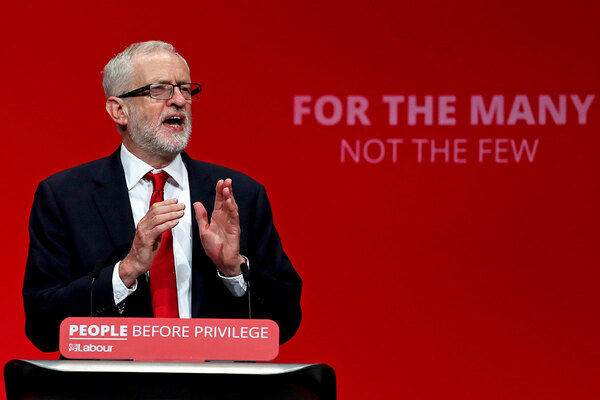You are viewing 1 of your 1 free articles
 Jules Birch
Jules BirchDecarbonisation: the opportunities and risks for housing
As the Labour Party and the Welsh government adopt plans to reduce carbon in housing, Jules Birch takes a look at what could be the dominant housing issue of the next decade
Decarbonisation took two more important steps up the housing agenda this week as the Labour Party conference endorsed radical plans for a Green New Deal and the Welsh government accepted in principle all the recommendations of a landmark independent review.
There is still some way to go before all this starts impacting housing organisations, tenants and homeowners but the general direction seems clear, and prepare to hear a lot more about what could become the dominant housing issue of the next decade.
The conference vote in Brighton on Tuesday afternoon represents a victory for the campaign group Labour for a Green New Deal and calls for a commitment to net zero carbon emissions by 2030.
That puts Labour way ahead of the UK government’s legally binding target to achieve net zero emissions by 2050 and in the vanguard of political parties worldwide.
In addition to phasing out fossil fuels and investing in renewables, the resolution calls for a green industrial revolution and a socialist restructuring of the economy with, for example, public ownership of transport and energy.
“Prepare to hear a lot more about what could become the dominant housing issue of the next decade”
The costs of decarbonisation should not be borne by the poorest, it says, and the process could produce thousands of well-paid, skilled jobs in renewables and the supply chain.
Specifically to housing, there should be “building and retrofitting of zero-carbon social and council housing and public buildings with lowest possible embedded carbon in construction”.
The radical plan won conference backing over a more cautious approach that did not specify a deadline for net zero because of concerns that moving too quickly will destroy jobs in carbon-intensive industries before there are new ones to put in their place.
It seems light on detail so far and from what I can see has nothing to say about decarbonising the privately owned homes that represent the vast majority of the housing stock.
However, as an indication of the likely impact and the scale of what remains to be done, consider the conclusions of the Committee on Climate Change, the independent advisor, earlier this year on preparing homes for the existing 2050 target.
While recommendations such as a ban on new homes being connected to the gas grid from 2025 made the headlines, the report also concluded that UK homes are “not fit for the future” and that long-term strategies do not exist to get social housing ready for 2050.
What distinguishes the recommendations of the report just accepted in principle by the Welsh government is precisely that it does have a strategy.
While the deadline for the decarbonisation of housing as a whole would be 2050, it would apply to social housing by 2030.
In the detailed plan laid out in the independent review published in July, 300,000 council and housing association homes and privately owned homes in fuel poverty would be in the vanguard of retrofitting all 1.4 million homes in Wales.
But that’s where the aspiration confronts the reality of costs that are estimated at £500m to £1bn a year between 2020 and 2030.
That’s just for Wales – the equivalent for England scaling up for its much bigger housing stock would be at least £10bn a year and that’s before allowing for the fact that the Labour conference motion might well mean retrofitting private homes by 2030 as well.
The cost is also the reason the Welsh government has accepted the recommendations in principle but not yet in practice.
“While the prospect of being the guinea pigs may alarm some social landlords, it also gives them the opportunity to be in the vanguard of the work”
As housing and local government minister Julie James said in her statement to the Welsh Assembly on Tuesday: “Let’s not pretend it is going to be easy or cheap. There are so many areas of uncertainty.”
She cited uncertainty about the exact state of the stock and the total costs of retrofitting, and about how quickly the energy supply grid will decarbonise.
Accepting the recommendations in principle did not mean she disagreed with them, she said, but “reflects continuing uncertainty about the best way to achieve or implement them and the further work required inside and outside government in order that we can be as clear as possible about costs”.
That will include working with social landlords to model the work on social homes, looking at existing programmes to improve the stock and make it more energy efficient, and working in tandem with the government’s strategy on fuel poverty.
Many of the key decisions will be taken by whoever wins the next Assembly election in 2021, but accepting them in principle now sends a powerful signal.
The Welsh approach may seem cautious by comparison with what Labour has just voted for in Brighton, but is it also more realistic?
If 2030 reflects the urgency of the climate emergency in a way that 2050 does not, there are also real doubts about the feasibility of changing so much so soon.
Done well, decarbonisation has the potential to generate lots of well-paid and highly skilled jobs with economic benefits that are spread around the country at the same time as it cuts carbon emissions.
While the prospect of being the guinea pigs may alarm some social landlords, it also gives them the opportunity to be in the vanguard of the work.
“Done badly, it could lead to a rush to demolish perfectly good homes because of the costs of improving them without considering the greater environmental impact of new construction”
They stand to benefit directly as lower fuel bills for tenants feed through into lower rent arrears for them and they could be well placed as the lead organisation in their locality as decarbonisation is expanded to the private sector.
For governments worried about the costs, the evidence seems overwhelming that the costs of failing to act will be much, much greater.
But done badly, or without enough planning, decarbonisation could yet turn into yet another bonanza for cowboy builders and another epic construction industry failure.
Done badly, it could lead to a rush to demolish perfectly good homes because of the costs of improving them without considering the greater environmental impact of new construction.
And a one-sided assessment of the costs without an appreciation of the benefits to follow could lead to competition for investment that will shove new homes even further down the priority list.
Jules Birch, award-winning blogger





